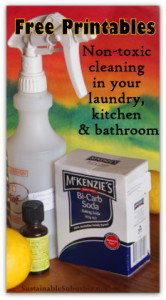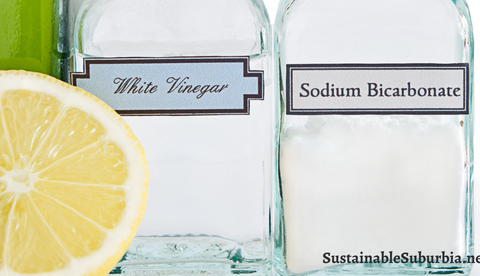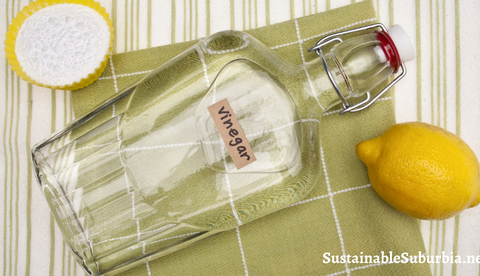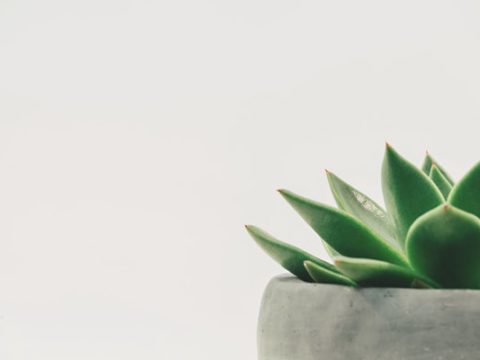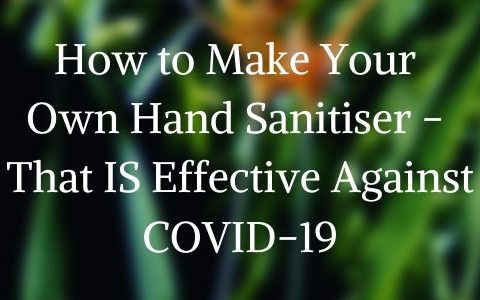Last updated on April 6th, 2020 at 03:19 pm
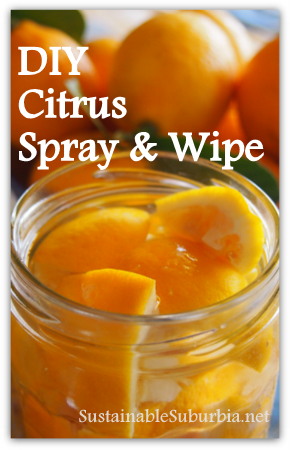
NB if you are looking for a disinfectant spray to use during the COVID-19 pandemic, take a look at this one.
Would you like to make your own, non-toxic yet truly effective surface spray, for just pennies a bottle?
Well, I’m here to tell you that you can, and really easily too.
First, a bit of background.
Last year I started making the citrus vinegar spray you can find variations of all around the interwebs, where you infuse your vinegar with citrus peel for a more powerful cleaner.
It was great, and I still use it a lot. But with a few refinements. Y’see, I wasn’t totally satisfied. Because after a while I noticed a bit of a funky smell.
Some Adjustments Had to be Made
Since then, I’ve made a discovery about using water. Many recipes you find on the net recommend using distilled, or cool boiled water. Why? Because water is a great medium for growing bacteria. There’s an excellent post about this topic over at Crunchy Betty.
I was mixing my lemon infused vinegar with water (anything from one part vinegar to four parts water, to a 1:1 ratio), and leaving it in the spray bottle. The first couple of times I made it I also didn’t strain the vinegar terribly thoroughly.
I suspect it was the bit of pith that made it through the strainer, more than the water, that resulted in the less than clean smell coming from my spray, despite all the vinegar. Either way, it’s not what you want in the cleaning spray you are using on your kitchen bench (or anywhere else for that matter!).
Now, there’s another addition that I sometimes make to this spray too, and it gives it a bit more of that foaming power you’ll be used to if you have been using commercial sprays.
So here are my more refined instructions for making an awesome citrus Spray n’ Wipe style cleaner. Now, note that I have instructions for today and some more for three weeks from today. If you need something for right now, just skip the first step, and use straight white vinegar instead of the citrus infused vinegar. It will still work pretty well.
PLEASE NOTE: You should avoid using vinegar or other acidic descalers on natural stone tiles like slate. The vinegar will gradually damage the tiles, the same way a commercial descaler will – the very properties that make it effective against a mineral build up in your shower, make it break down the minerals in the stone.
You will need
Today:
A wide mouth jar
Citrus peel
White vinegar
In 2-3 weeks:
A fine mesh or muslin strainer
A spray bottle
Distilled or cool boiled water, or more white vinegar
Optionally a teaspoon of dishwashing liquid
Optionally some lime essential oil
Instructions
- Loosely fill your jar with left over citrus peel of your choice.
- Fill with vinegar, covering the peel.
- Leave in a dark place (or at least out of direct sunlight) for two to three weeks.
In two-three weeks:
- Strain the vinegar through a fine mesh or muslin strainer. Do this twice if necessary, if your peel was very pithy. That pith will block up your spray bottle.
- You can either use your citrus vinegar neat, dilute it with more vinegar, or dilute it with distilled or boiled water. If you dilute with plain tap water, I recommended only making up enough to use over a week or so.
I make up a fairly weak solution (1:4 or even 1:8, depending how much I have), for my kids to clean with, knowing they will spray waaaay more than necessary. - Optionally add a few drops of citrus essential oil for extra disinfectant properties and a delightful smell. Lime is my favourite and studies have found it works well against a range of germs.* About 30-50 drops per litre of made up spray.
- Optionally add 1 tsp of your preferred dishwashing liquid. This will give it a little more omph, especially if you skipped the citrus soaking step.
Most of the time I just make the straight citrus-vinegar spray, with no oils or dishwashing liquid, and I love knowing that my kids could drink it and it wouldn’t hurt them. My three year old likes to help us clean sometimes, so I give her a very watered down version and set her to cleaning the windows. She goes through a lot of it, but it’s very cheap, totally safe and it keeps her busy and feeling helpful.
(edited years later to add – my three-year-old is now a seven-year-old and she now uses an envirocloth and window cloth (Norwex brand) to clean my windows and does it pretty well (as high as she can reach, LOL!) – and she’s still pretty enthusiastic about it, which is more than I can say for my older kids!!)
AGAIN, PLEASE NOTE: You should avoid using vinegar or other acidic descalers on natural stone tiles like slate. The vinegar will gradually damage the tiles, the same way a commercial descaler will – the very properties that make it effective against a mineral build up in your shower, make it break down the minerals in the stone.
What to do next with the citrus peels?
When you strain the peel out of the vinegar, try to do it at a time when you have a few minutes to clean. Those vinegar soaked peels can be used for wiping out your kitchen sink or cleaning you microwave before you toss them. I like to put some in a dish in the microwave for a minute or two. Try it – you’ll find the wiping out the microwave a breeze afterwards.
 Would you like to get the stains out of your kids clothes with an easy to make no-nasties spray?
Would you like to get the stains out of your kids clothes with an easy to make no-nasties spray?
If you’d like my set of non-toxic cleaning recipes for your laundry, kitchen & bathroom, including two pre-wash stain remover sprays for the laundry, sign up to get my Free Non-toxic Cleaning Printables.
I have them on my laundry wall, but you may want to put them up in your pantry cupboard or even the kitchen wall. When you sign up, you’ll get the printables, plus the occasional special subscriber only emails.
So what are you waiting for? Go get ’em!
Of course, if you want to make cleaning even easier and quicker, I can’t recommend Norwex clothes highly enough. Take a look at this post if you’d like to know more. And their laundry detergent? Woo!
_______________
*See for example this study in BMC Complementary and Alternative Medicine. Back

